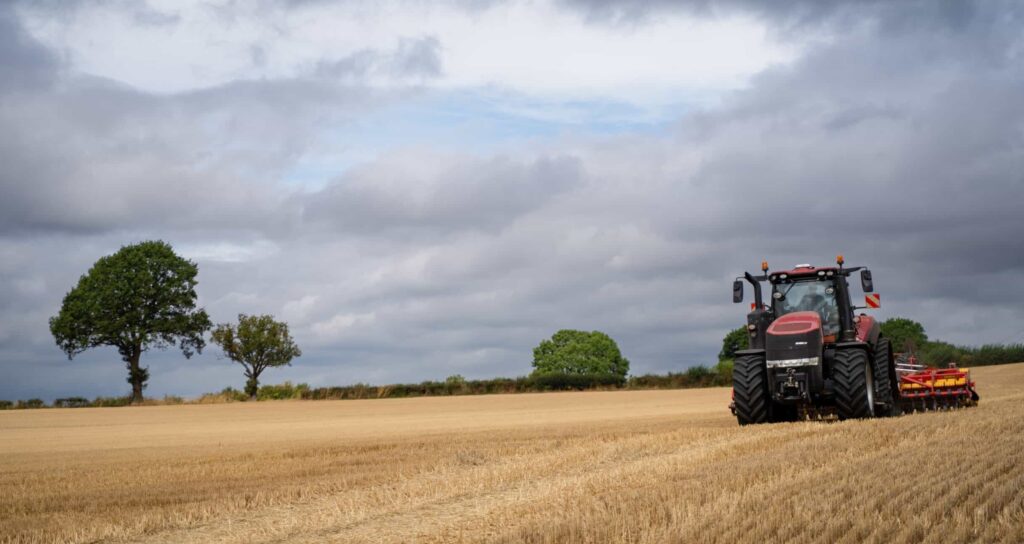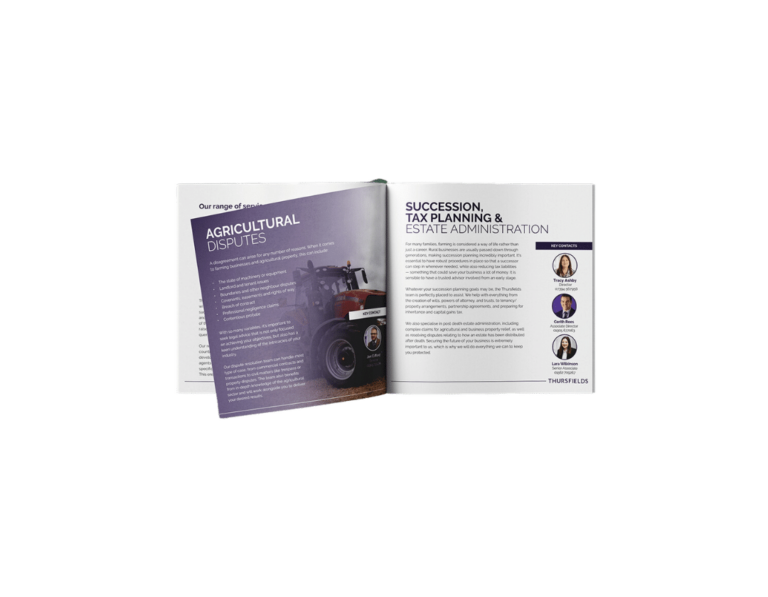Key Family Farm Succession Planning Tips

Family farm succession planning can be an essential step towards drawing up a long-term plan for your home and business. As well as offering clarity about the future of your farmland, it also improves the likelihood of a seamless transition between you and the beneficiaries of your estate.
If you need specialist guidance to develop comprehensive farm succession planning strategies, it’s important to work with a law firm with experience in both estate management and the agricultural sector to ensure you receive the best possible result.
What is Farm Succession Planning?
Family farm succession planning involves preparing future generations for the task of taking over the business when the current owners depart. It is designed to minimise disruption and ensure the new crop of talent has all the tools they need when the time comes.
Putting together farm succession planning strategies can be complex and requires some serious thought. A specialist law firm can help you navigate the process and ensure everything is taken care of.
The Growing Importance of Family Farm Succession Planning
Succession planning for farming families will help to establish your ambitions for the estate, while also detailing who will be involved in the day-to-day operations. It’s a key opportunity to define which family members will continue to be involved and protect your legacy after you’ve stepped down.
Reports show that the number of farmers wanting to step back from operations is rising. Farm owners are also part of an ageing demographic. All of this highlights the often urgent need for farm succession planning.
If you’re making an exit strategy of your own, it’s important to take advice from an industry expert. This should instigate a few essential questions that are designed to help you resolve the biggest decisions.
Key Questions For Agricultural Succession Planning
There are important areas to address during succession planning for farming families. Ideally, everything should start with communication among family members. This will allow you to talk about your goals and gauge the preferred level of involvement among your loved ones. You should also understand any wills, partnership agreements, and powers of attorney, to minimise potential unpleasant surprises.
To help with this, here are some of the main questions to address during the early stages of rural succession planning:
- What is the Current State of the Business?: Are you giving an honest account of the current financial situation? Importantly, is it financially viable?
- What Outside Help Do You Need? Would help from the likes of legal professionals, farming consultants, accountants, and land agents make the process easier?
- What Are the Risks? Are there any serious threats to the farm’s long-term future? This is your chance to make them known.
- Have You Thought About Farming Partnerships?: In some circumstances the lack of an agreement means the business will end when a partner dies. Have you reviewed your situation?
- How Would Illness Affect the Farm?: If an existing partner becomes ill, do you have a solid contingency plan to handle their absence? Is there a Power of Attorney in place?
- How Do You Resolve Disputes?: Do you currently have ongoing disagreements — financial or other — with any third parties? If so, how are they expected to be resolved?
- Is a Will in Place?: A will may be needed to ensure that the farm can continue to operate in the event of death.
With so much to consider — and so much potential for things to go wrong — enlisting experienced legal advice is usually the most effective way to start tackling family farm succession planning.
Farm Succession Planning Strategies Explained
In the early stages of agricultural succession planning, communication is vital. You should clarify who needs to be part of the conversation, and also consider bringing an expert on board to help lead discussions, iron out issues, and explain your options. Having a clear roadmap is generally the most effective way to work towards your goals.
One of the biggest questions will probably be how best to divide your farmland among beneficiaries. At this point, you’re advised to think about how the farm currently operates, who is most involved, how your current goals might change under new ownership and who lives where. Living space might be limited, so it’s useful to think about which family members would live on-site and which ones might find it easier to commute.
Here are the most important considerations in more detail:
– The Financial Side of Rural Succession Planning
It’s essential to think about the financial implications of rural succession planning. Historic land and buildings could have increased significantly in value over the years, so may be subject to major shifts in Capital Gains Tax. Similarly, it’s useful to take advice about inheritance tax, to ensure that you’re adopting a sensible approach that keeps contributions under control.
– Farm Succession Planning and Family
Pleasing everyone can be tricky for anyone, but especially when there are high value assets at stake. If certain family members don’t want to receive farming assets, you might need to offer alternative gifts of a similar value, such as possessions, cars, jewellery etc. Forward planning can help you to put together a separate pot that limits the likelihood of family disputes when the time comes to hand over the reins.
– The Importance of Communication
Prioritise open, constructive dialogue and make sure everything discussed is documented for future reference. Well drafted legal documents should be able to withstand any future challenges. These often include partnership agreements, wills, lasting power of attorney, and detailed family agreements signed by all parties.
Ultimately family farm succession planning should clearly detail every aspect of your farming operation, with everything set out in black and white. Getting this right will ensure that your property is divided in accordance with your wishes and that there is total transparency for everyone involved.

Thursfields: Experts in Farm Succession Planning Strategies
Thursfields has considerable experience of rural succession planning. A full-service law firm with a specialism in agriculture, our expertise and experience makes us a reliable partner for farmers and agricultural businesses alike. We have an in-depth understanding of the unique challenges and complexities surrounding succession planning in the farming industry, and offer tailored solutions to ensure a seamless transition between generations.
Our commitment to transparency, insights, and lasting results can bring peace of mind for the future of your most valuable legacy. We will approach your situation with sensitivity and work tirelessly towards your objectives. Contact us today for further information on how we can help.
Get In Touch
With Us
Need expert legal advice? Our solicitors are here to help. Get in touch today.



